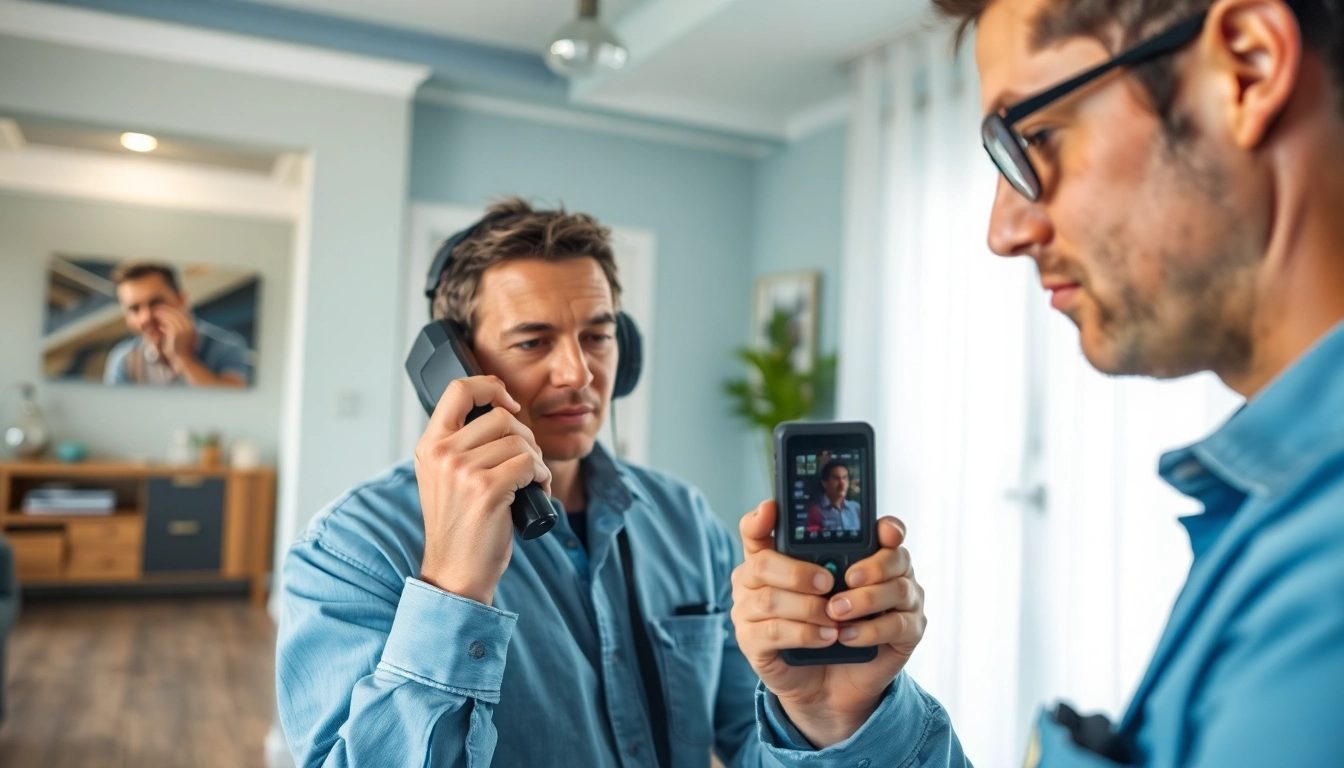Introduction to Leak Detection Specialist Services
When it comes to maintaining the integrity of your home or business, undetected leaks can be one of the most insidious threats. A Leak Detection Specialist plays a crucial role in safeguarding your property from damage caused by water or gas leaks. This guide explores the vital services offered by leak detection specialists, detailing the importance of their work, the technologies they use, and the steps you can take to protect your property.
Understanding Leak Detection Technology
Leak detection technology has evolved significantly over the years, employing advanced methods and equipment designed to identify leaks with precision. From acoustic sensors that hear the sounds of leaking water to infrared thermography that detects temperature changes, these technologies have revolutionized how leaks are identified and mitigated.
Modern leak detection methods often utilize non-invasive techniques, which means that the process minimizes disruption to your property. Technologies like electromagnetic detection, which assesses the moisture levels in walls and floors, enable specialists to locate leaks without the need for extensive digging or tearing down walls.
Importance of Hiring a Leak Detection Specialist
While some minor leaks may seem manageable, they can lead to significant damage if not addressed promptly. This is where a leak detection specialist becomes invaluable. Hiring a professional not only ensures that leaks are identified accurately and efficiently, but they also bring expertise that can save you time and money in the long run. Having a certified specialist can also provide peace of mind, as they are trained to handle potentially hazardous leak situations, especially those involving gas lines.
Common Signs of Leaks at Home
Being able to identify the early signs of a leak can help prevent extensive damage. Here are some common indicators that you may need to consult with a leak detection specialist:
- Unexplained increases in your water bill
- Wet spots or water stains on walls or ceilings
- Musty odors or mold growth
- Hissing sounds near plumbing fixtures
- Cracks in walls or floors
If you notice any of these signs, it’s essential to take action quickly before the issue exacerbates.
Types of Leak Detection Services
Non-Invasive Methods Used by Leak Detection Specialists
Non-invasive leak detection methods are essential for minimizing damage during the detection process. Here are some commonly used techniques:
- Acoustic Detection: This method involves the use of microphones to detect sound waves produced by leaking water.
- Thermal Imaging: Using infrared cameras, specialists can identify temperature discrepancies that indicate hidden leaks.
- Moisture Meters: These devices measure the moisture levels in various materials, helping to pinpoint potential leaks.
Comparing Leak Detection Techniques: Pros and Cons
Different leak detection methods come with their own advantages and disadvantages:
| Technique | Pros | Cons |
|---|---|---|
| Acoustic Detection | Highly effective for underground leaks; non-invasive | Requires experienced technicians for accurate results |
| Thermal Imaging | Fast and non-destructive; provides visual evidence | Less effective for certain building materials |
| Moisture Meters | Cost-effective; easy to use | May miss leaks that are not readily visible |
The Role of Technology in Accurate Leak Detection
Technology plays a central role in modern leak detection. Not only do sophisticated devices enhance accuracy, but they also improve service efficiency. For instance, the integration of smart technology allows for real-time monitoring of systems, which is particularly beneficial for commercial properties where a prompt response is critical.
Moreover, technology can aid in providing diagnostics over time, enabling specialists to predict potential weaknesses before they result in significant leaks. This proactive approach is key to comprehensive property management and protection.
Factors to Consider When Choosing a Leak Detection Specialist
Credentials and Certifications for Specialists
Before hiring a leak detection specialist, it’s essential to verify their credentials. Look for certifications from recognized organizations, which ensure that the specialist has undergone the required training and adheres to industry best practices. Certifications can indicate a commitment to quality service and ongoing education in the latest technologies and techniques.
Reviews and Testimonials: What to Look For
Reviews and testimonials from previous clients can provide significant insights into a leak detection specialist’s reliability and quality of service. Pay attention to feedback regarding the technician’s professionalism, workmanship, and the effectiveness of their leak detection methods. A pattern of positive reviews is often a strong indicator of a trustworthy specialist.
Cost vs. Value in Leak Detection Services
When assessing leak detection services, it’s important to consider not just the cost but also the value. While lower prices may be appealing, they can sometimes translate to poorer service quality, which can ultimately lead to higher repair costs down the line. Evaluate quotes carefully and consider what is included in the service, such as follow-up consultations or warranty on repairs.
Step-by-Step Process of Leak Detection
Initial Assessment by a Leak Detection Specialist
The first step in the leak detection process involves an initial assessment. A qualified leak detection specialist will conduct a thorough inspection of your property, identifying potential areas where leaks may be occurring based on visible signs and using their training to interpret your plumbing system layout.
Tools and Techniques Used During the Inspection
During the inspection, specialists use an arsenal of tools designed to uncover leaks. These include:
- Acoustic listening devices
- Thermal imaging cameras
- Pressure testing equipment
Each tool provides valuable data that when combined with the specialist’s expertise, helps to pinpoint the exact location of hidden leaks.
Follow-Up Procedures After Leak Detection
After identifying the leak, the specialist will recommend follow-up procedures based on the severity and location of the leak. This may include immediate repairs, maintenance advice to prevent future leaks, and scheduling regular inspections to monitor the plumbing system’s integrity.
Best Practices for Homeowners to Prevent Leaks
Routine Checks and Maintenance Tips
Homeowners play a vital role in preventing leaks. Routine checks and maintenance can go a long way in catching leaks early. Here are some best practices:
- Regularly inspect visible pipes and fixtures for signs of wear and tear.
- Ensure that drainage systems are clear to prevent backups that may lead to leaks.
- Monitor your water bill for unexpected increases.
Signs of Potential Plumbing Issues
Understanding the signs of potential plumbing issues can help you take immediate action. Watch for:
- Changes in your water pressure
- Sudden pool of water on your property
- Persistent damp smells in particular areas
When to Schedule Regular Inspections with a Leak Detection Specialist
Scheduling regular inspections with a leak detection specialist can help protect your property. Consider initiating services after extreme weather, upon noticing any signs of leaks, or as part of an annual maintenance check. A proactive approach is key to preventing minor issues from escalating into more significant problems.



